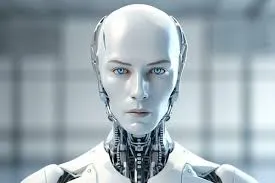The rise of artificial intelligence (AI) has stimulated an exciting debate: how do people and AI accumulate intellectually? While both possess forms of intelligence, they operate in basically different methods. Understanding these distinctions is crucial for navigating the future, where people and AI will likely exist together and team up.
Handling Power vs. Abstract Thought
AI stands out at refining large amounts of information with warp speed. Algorithms can examine complex patterns and make forecasts with extraordinary precision. In tasks like crunching monetary information or recognizing things in images, AI surpasses human capacities. However, AI deals with abstract thought and thinking outside its configured parameters. Humans, on the other hand, can examine scenarios, make judgments based upon insufficient info, and adapt to unforeseen situations.
Discovering and Flexibility
AI’s understanding is based on the data it’s fed. It can determine patterns within that information and improve its performance on similar jobs. Nevertheless, true understanding or generalizable knowledge remains elusive. Humans, via experience and observation, can pick up from a larger range of stimulations and apply that knowledge to completely new situations. This adaptability allows people to prosper in ever-changing atmospheres.
Creativity and Technology
One of humanity’s best toughness is creativity. We can produce originalities, resolve troubles with unique approaches, and generate art that stimulates feelings. While AI can be trained to imitate imagination within certain criteria, it currently does not have the capacity to believe outside package or produce genuinely original concepts.
Social Knowledge and Emotional Dexterity
Human intelligence is deeply intertwined with our social nature. We can understand emotions, feel sorry for others, and construct significant connections. AI, however, battles to browse these intricacies. While AI can recognize facial expressions and react with pre-programmed discussion, it lacks the genuine understanding of human emotions that cultivates deep links.
The Future of Human-AI Cooperation
The goal shouldn’t be to match humans against AI, however instead to utilize the toughness of each. AI can automate laborious jobs, evaluate huge datasets, and recognize fads unnoticeable to the human eye. Human beings can concentrate on the elements that call for imagination, compassion, and social abilities. Visualize medical professionals making use of AI for complicated diagnoses while applying their own judgment and concern to patient treatment.
Honest Factors to consider
As AI ends up being a lot more sophisticated, ethical considerations come to be extremely important. Prejudices present in training data can bring about discriminatory end results. Guaranteeing justness and openness in AI advancement will certainly be essential. Additionally, as AI tackles a lot more complicated jobs, inquiries arise about duty and liability.
Final thought: A Symphony of Knowledge
Human beings and AI are not in competition; they are complementary types of intelligence. By recognizing their special strengths and restrictions, we can promote a future where human beings and AI work together to attend to worldwide obstacles, produce a far better globe, and probably, push the borders of knowledge itself. This future rest on using the power of both– the adaptability, creative thinking, and psychological intelligence of human beings, along with the handling power and tireless analysis of AI. With each other, they can create a harmony of knowledge unlike anything the globe has actually ever before seen.
For More Informtion Visit: https://www.wakeups.online/






